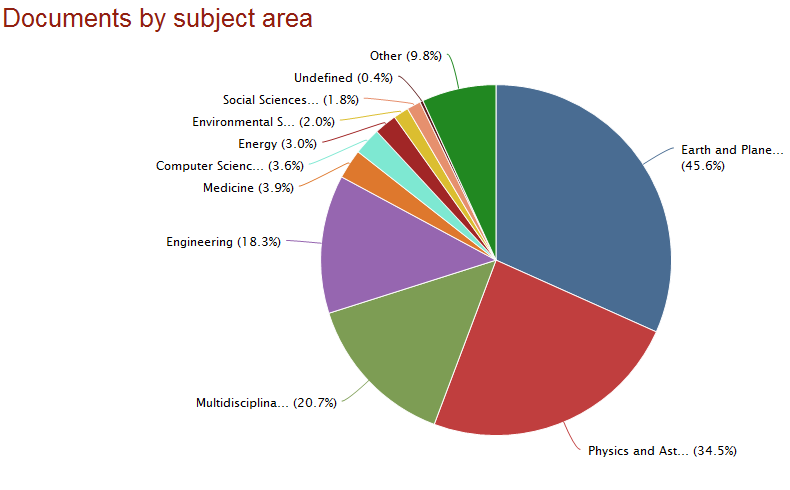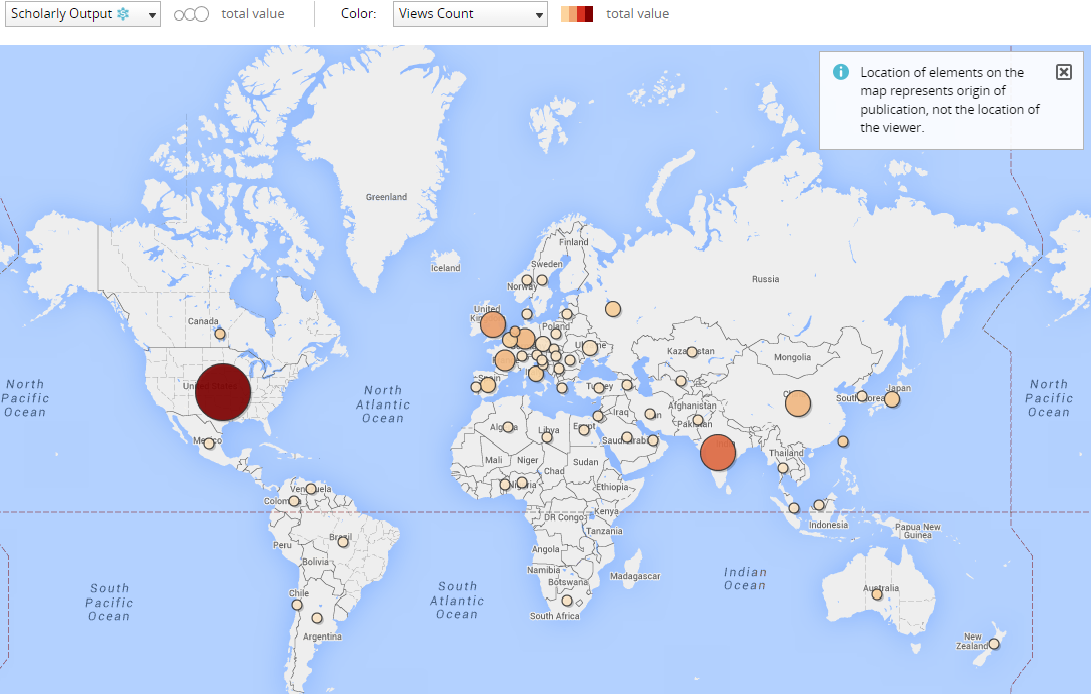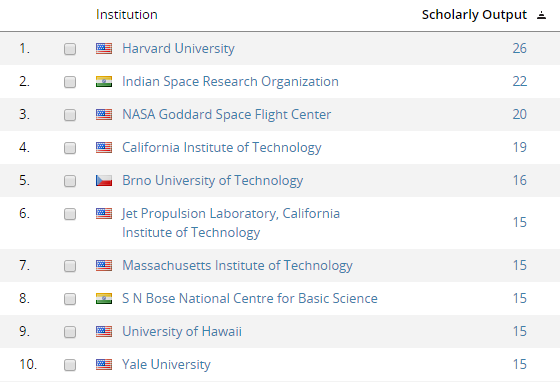Total eclipse of the sun (and who’s studying it)
Day will turn into darkness on Friday, March 20 during a total solar eclipse - a phenomenon which occurs when the moon's apparent diameter is larger than the sun's, blocking all direct sunlight. But no need to alarm; totality will only have a maximum duration of 2 minutes 47 seconds off the coast of the Faroe Islands.
Looking at Scopus content related to solar eclipse from 1836 to the present, it is interesting to see how scientific output is spread across an array of different disciplines, stretching from astronomy and planetary sciences to engineering, medicine, and social sciences.
Carrying significant impact upon existing energy supplies, solar eclipses are being studied by researchers across the globe. Focusing on the scientific landscape for research area “solar eclipse” in SciVal, we had a look at the top countries and institutions over the last 5 years (2010-2015). In terms of scholarly output (as well as total number of views), the leading countries are US, India and UK with 198, 107 and 66 publications respectively.
Furthermore, the top 10 institutions are all based in either US or India (with the exception of Brno University of technology).
Getting ready
Make sure not to miss this year’s total solar eclipse as you may have to wait quite long before another opportunity arises (the next total solar eclipse visible in Europe will occur on August 12, 2026).
Also, make sure to prepare accordingly: do not look at the sun directly, avoid taking selfies with your camera phone, and read the instructions by the Royal Astronomical Society on how to observe an eclipse safely.
As to what would be the most fitting soundtrack for this rare occurrence? Depending on your musical taste and mood, you could choose from a variety of options ranging from Bonnie Tyler’s "Total Eclipse of the Heart" to Pink Floyd's "Eclipse", the closing track of their iconic The Dark Side of the Moon.




